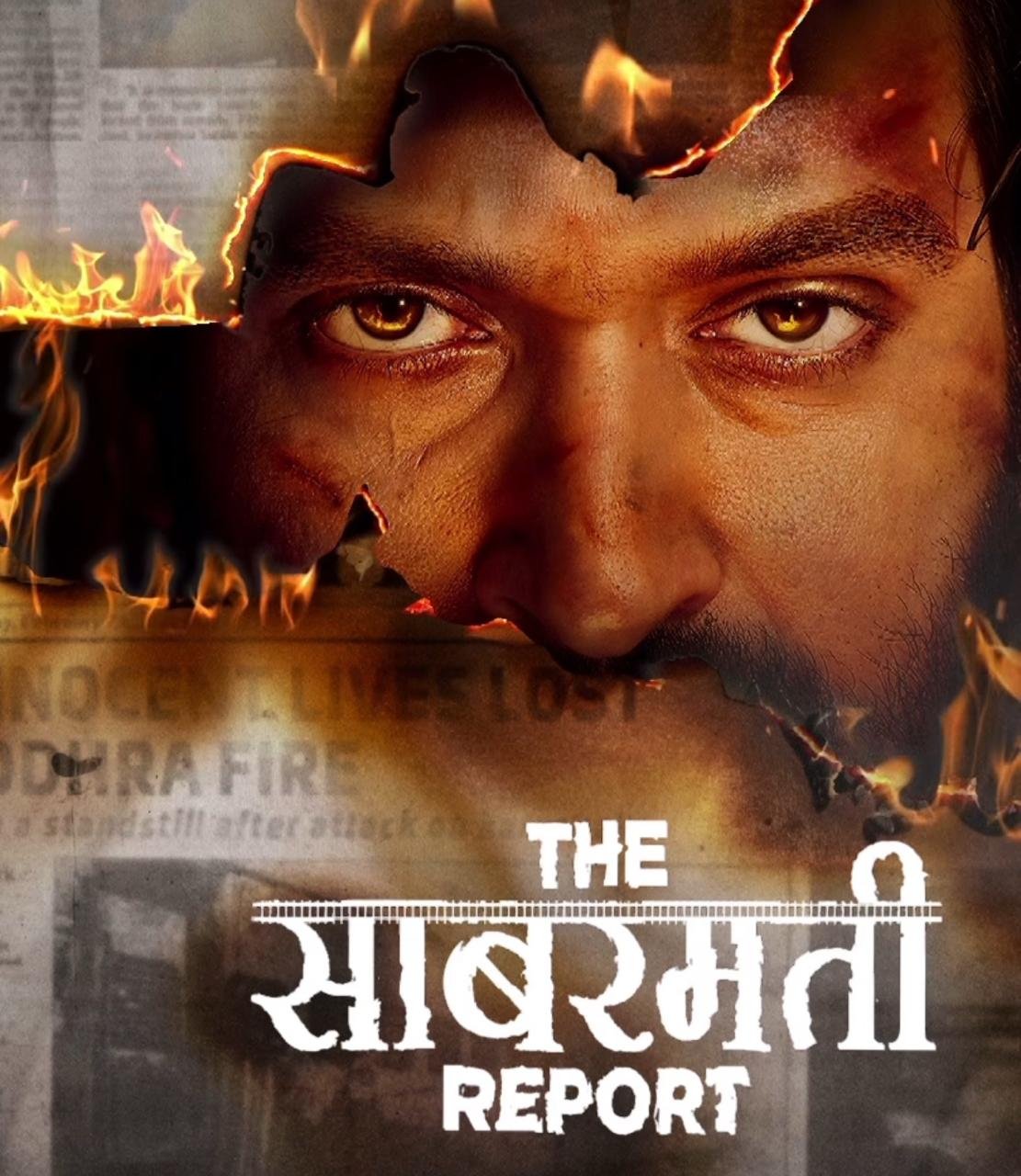Mumbai (Harshit Yadav), November 24: Bollywood film ‘The Sabarmati Report’ was released on November 15, 2024. This film has raised many issues in different places in India by highlighting the association of art with history that still touches deep feelings. This political drama movie, under the direction of Dheeraj Sarna, tells about the 2002 Godhra train burning, which is, till this day, one of the among most debated events in India’s recent history.
The cast includes Vikrant Massey, Raashii Khanna, and Riddhi Dogra, who bring to life the interlocking of human and political intricacies related to the incident. Distributed by Balaji Motion Pictures and Vikir Films Production, the movie faced controversies and a mixed critical reception at its premiere, but it cannot be denied that the film has left a significant mark.
Plot and Themes
The line described the film’s storyline, which “Sabarmati Report” got its name from, as the way Samar Kumar (Vikrant Massey) conceives the tales – “he, a journalist, is in the midst of a war on political and religious grounds due to the Sabarmati Express train attack”.
The story depicts the real-life moments of the survivors, the engineering of politics, and the media that designed the public discourse. With Amrita Gill portrayed by Raashii Khanna and Manika Rajpurohit by Riddhi Dogra, the movie pictures a complex relation between the media, politicians, and public authorities that is seeking of justice.
The film employs a grown-up way of dealing with a very delicate subject matter by refreshing some of the sections, which could indicate that the movie is heavily based on cardinal history. By respecting the victims and highlighting the human stories hidden behind the headlines, it is intended that the opinions of the viewers regarding a highly polarized event be balanced and objective.
A Stellar Cast Performance
Vikrant Massey who is famous for his performances in movies like the one titled 12th Fail. He has played one of the most significant sides as Samar Kumar a journalist who is indestructible to find out what has happened in truth. His particular role brings the issue of ethics journalists come up against when there is the political or the religious sector conflict.
Rashii Khanna and Riddhi Dogra are able to give us fantastic performances as professional women who, along with their personal lives, bear prominent parts as well in the story. They skillfully engage in juggling their personal hardships and responsibilities to work. Barkha Singh does a walk on the role of Samar’s love interest, who circles the emotionality of the storyline.
Production Challenges and Controversies
The Sabarmati Report’s ride to the cinema was a long, bumpy one. The film was directed by Ranjan Chandel at first. Later, there were a lot of rewrites, which made him leave. Then Dheeraj Sarna took over as the director who, developed the narrative that was meant to convince the producers of their ideas. However, the production also had to jump the censorship hurdles, first of all, by the CBFC (Central Board of Film Certification), which made the administrators sever the limbs of some violent scenes.
Also, the movie brought in quite a bit of controversy before the launch. Vikrant Massey, who is the main character in the film, revealed that he was threatened because his role conflicts with a controversial Indian event. The team, however, was unperturbed by all these consequently, they were able to deliver a historical masterpiece.
Cinematography, Music, and Direction.
The visualization aspect, which was implemented by Amalendu Chaudhary, has effectively illustrated the chaos, tension, and raw emotions of the time. The background music and songs, composed by Kartik Kush, Akhil Sachdeva, Anu Malik, and Arko, have that soul connection, which is conveyed in the narrative.
ssAmong tracks such as “Tere Mere Darmiyan” and “Sheher Sheher,” the personal introspective tunes fueling the inner soul, as well as the uplifting cues throughout the film, are the ones that stand out.
Although some believe that Dheeraj Sarna’s direction just swam in cinematic embellishments, it kept viewers on edge, which is a success. Additionally, Sarna succeeds in cinematic storytelling that harmoniously knits together individual- and politically-invested struggles with arranged substance, gaining him a deft balance of storyline with a strong message as well.
Critical Reception
Critics have inflicted various thoughts about The Sabarmati Report. Critics often stated that the cast acclaimed the role for its dynamic quality, which was the reason for the ones criticizing execution. Shubhra Gupta of The Indian Express gave it a 1.5 and accused the movie of using mainly reactionary approaches with no element of depth in it. Likewise, Bollywood Hungama criticized the film for its disjointed execution, but Hessian and the Production Design remain its positive aspects.
Meanwhile, Amit Bhatia from ABP News gave it 3.5 stars, besides appreciating the film for the actor’s trajectory from the real trauma of crime to the media as both a detective and a self-distorting agent. Lachmi Deb Roy of Firstpost also rated 3.5 stars, defining the plot and the uncommon lack of melodrama of the movie as the key attractions.
Apart from that, some reviewers, for instance, Abhishek Srivastava from the Times of India, recognized that despite the movie being a strong performer, the polished look of the film still could not justify its obliterated truthfulness. Zinia Bandyopadhyay from India Today, apart from the honorable mentioning of such features, asserted that the situation at some points might reduce the tension of the main scenario.
The Sabarmati Report vs. Other Films on the Godhra Incident
The Godhra train incident has been a controversial topic not only for The Sabarmati Report but also for other films. The film has been referred to as a remake of Conspiracy or Accident, yet another work that touches on the incident. One of them steals ahead with a truly documentary approach, while The Sabarmati Report uses the same genre, that of fictionalized accounts, to pursue a story on how personal and political motives played out.
On the other hand, Sukanya Verma and other critics opined that the film did not have the breadth of such works as Parzania and Firaaq, which had a stronger humane horror for the 2002 riots.









